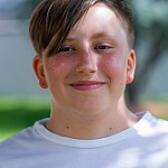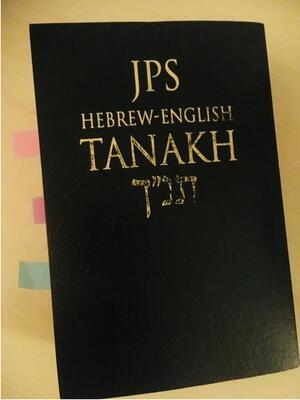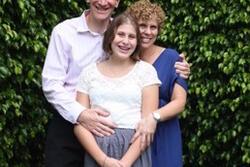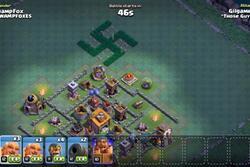Interpreting the Torah Through a Feminist Lens
When I was going into sixth grade, I moved from Arizona to Kansas City. It was a big move, but the most significant adjustment for me was going from public school to a private Jewish day school. While my family had always been fairly involved in our synagogue, I went from going to services three or four times a month to going five days a week. I was also now completely immersed in Judaism every day, with three of my eight classes being related to Judaism.
I’d always been a feminist and strongly believed in full equality for everyone, but before that year I’d never been exposed to Jewish beliefs that reflected inequality based on gender or sexuality. I’d been completely surrounded by Reform Judaism and had only ever learned Torah from Sunday school, camp, PJ Library books, and at home. Needless to say, my exposure beyond liberal Judaism was limited.
My first class of the day happened to be a Tanakh class focusing on the book of Samuel. I’d never learned any part of the Prophets before in an in-depth way, so I thought this class would be a good introduction. The first story in the book of Samuel is about infertility. A woman named Hannah can’t get pregnant, so after being emotionally tortured by her sister-wife, she prays to G-d for a son, and G-d delivers. This first story got me excited for the rest of the class. Would all the stories be about strong women who stand up for what they want and have a strong belief in G-d? I’d heard that some stories in the Tanakh didn’t portray women in such positive ways, but reading the story of Hannah inspired me to look more closely at other passages involving women, feminism, and equality.
I got my own Tanakh and started doing some research. I looked up different passages, including some that I’d heard that seemed to go against my beliefs as a feminist and activist. One of the first texts I looked up was, “Do not lie with a male as one lies with a woman.” (Leviticus 18:22 (JPS)) I’d only ever heard that verse in the context of Christianity, so I wanted to find out if it existed in the Torah as well. I asked my teacher from Tanakh class if it was there. Sure enough, it was.
I was mad. I was mad that my own religion had something so homophobic in its sacred text. Once I got over being mad at a book, I started to research the meaning of and the context surrounding this infuriating passage. I began to realize that there were many ways of interpreting this text, and many possible meanings. I believe that this text has a completely different meaning than the traditional message that gay sex is wrong and a sin. Just as many people use biblical text to support their agendas, I found I could use it to support mine, too.
When I later heard the story of Sodom and Gomorrah, I did the same thing. I read the surrounding text and other commentaries and then came to a different conclusion than the one traditionally advanced. My interpretations by no means discount the traditional ones, but they simply offer alternative views backed up by some commentators and texts.
As my studies continued, other aspects of Jewish tradition made me uncomfortable. For example, I grew frustrated to hear G-d referred to only as “he,” because in Hebrew, G-d has both male and female names, and the Tanakh describes G-d as having both masculine and feminine traits. I refused to refer to G-d as only male, which sparked many debates with my Jewish Studies teacher. I knew that using both pronouns would only lead to more unfruitful debates with my teacher, so I followed my own way of referring to G-d: I stopped using any pronouns at all. Having that education in Jewish texts empowered me to craft my own opinion, and I know it will enable me to continue to make educated decisions about what I believe in going forward.
Just as my journey as a Jewish feminist has been influenced by my studies, it is also influenced by my experience in daily prayers. Toward the end of the first year at my new school, I made the decision to join Orthodox prayers. At my school, that means a mechitza, or divider, is used to separate the sexes. I was not and still am not a fan of the wall, but after much consideration I decided it was the best place for me to pray. It was quiet, and I was completely alone with my own unique thoughts and ideas.
Even though I was the only girl, I kept going; and every Monday and Thursday when the Torah was read I would make my presence known, and I refused to be passed over when the Torah was being brought around. I continued going to these prayers for the next three years, and the women's side continued to grow. Eventually we ran out of room on our side, but while the men had plenty of space, there was nothing we could do. So, we squished as many people as we could and made do; but we never left or gave up our space in that room. It was ours, and we would not be overlooked, or silenced.
I now know that there are inequalities in the Torah and Judaism, but there are more inequalities in how we interpret the Torah and how we behave as Jews. So, the next time you hear an interpretation of a biblical story that doesn’t sound just right, open a Tanakh, or Google it, and make your own opinion about how that text should be interpreted. And, if you see something amiss but feel you can’t overtly challenge the status quo, find a way to make a small change, and get the ball rolling.
This piece was written as part of JWA’s Rising Voices Fellowship.








Great work!